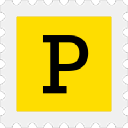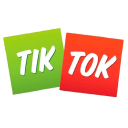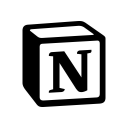I Used Twitter To Build My Startup And Made $3.5K On Launch Day
Hello! Who are you and what business did you start?🔗
I’m Philipp. I live in Switzerland with my wife and two teenage kids. I’m working as a Product Manager in a real estate marketplace company. My background is computer science. Two years ago I started building projects on the side.
My flagship product is “SEO Kickstarter”. It’s a Notion guide which helps you get your first backlinks to start getting first SEO traffic. The step by step instructions take you from Domain Rank 0 to 20 with 2 hours of effort. My customers are startups who just started their journey. It’s usually people who don’t know how to start with SEO.
I’m currently making $5K MRR from this business. This financial success was a total surprise. Initially this was meant as a sidekick for a software I was building.

What's your backstory and how did you come up with the idea?🔗
I was building my first startup (a shared flat site). After half a year of development I published it and got zero traffic. Since ads were not an option for me (the site made no money) I knew that SEO must be my main traffic source.
With zero SEO experience I started learning about all the aspects, especially about backlinks. SEO experts recommended me to do cold email outreach asking other sites to put a backlink to my shared flat site. It was very much outside my comfort zone. And it was a manual, tedious effort, every mail taking around half an hour.
After some weeks I got my first backlinks and eventually ranked my site #3 on the relevant Google searches. Hell, I even outranked established sites which were in the market for a lot longer than me!
I wanted to double down because I wanted to have the #1 spot. So I started to automate my backlink outreach and created an app in retool (a nocode frontend). I posted a picture of it on twitter: »Would anyone be interested to use this as well?«.
I got 26 answers. I thought: »People are just kind, they are not really interested« but people started DMing me and asked when the tool might be ready for them to use. Hesitant at first I stopped building my shared flat search and started building the “backlink builder”.
I launched it with a limit of 10 seats. The seats were gone after 3 days. Over the next months I fixed bugs and added features. I watched how my customers were using the product. I was reaching out to them, asking them how they are doing. Turns out the product was NOT working for them: I underestimated the complexity of cold email outreach, especially for SEO beginners.
My tool made it somewhat easier, but they still had no clue how to write compelling messages, how to set up their email systems so the emails would not land in spam, etc. I needed something much easier for beginners.
The idea of “SEO Kickstarter” - a guide for SEO beginners how to get their first backlinks was born.
At lunch time I had 15 sales. That’s when I increased the price from $29 to $49 and added a price ladder ($30 off for the next 50 customers). By midnight I made 87 sales and $3400 revenue.
Take us through the process of building the first version of your product.🔗
My journey for SEO Kickstarter started with me learning SEO publicly on Twitter. I considered myself still an SEO beginner, but I wanted to learn as much as I could in the shortest time possible.
Since I was not afraid of being wrong in public, I posted a tweet asking people to drop their domain name and I’ll reverse-engineer what they’ve done in terms of SEO already.
I hoped to get 10 replies, but in the end I had 135! I automated my research and soon had a system which allowed me to reverse-engineer the SEO efforts of any domain in 3 minutes. Turns out my research was correct as people were astonished on how I so accurately could tell their previous SEO effort. I was building up both a personal brand and had good SEO data of 135 startups.
Here’s a video on how I reverse-engineered the SEO:
I extended the database to 200 domains and analyzed the “most common easy to get backlinks with the biggest SEO effects”. It was weeks of manual work. I took 1 week of holiday from work to work on the research uninterrupted: I looked into hundreds of sites and checked if they accept submissions, if the submission is free, for which startups it would apply, how long it takes until they would accept it etc. etc.
At Xmas, one month later I had a first version of a Notion page which contained all my research findings. Unsure about the quality of my product I emailed around 10 people sending them the link to the Notion page and wishing them happy Xmas.
All I got back was “Happy Xmas to you too!”. I was devastated. It looked like all the research was for nothing.
Here’s the email I sent out:

Still I thought: Let’s get this product out, give it a fair shot, only then I can close this chapter and move on.
First I needed a good landing page. I had no knowledge of good copywriting. Heck I didn’t even know how to talk about the product! (the screenshot of the email above is good proof that I still lacked the vocabulary to talk about it). I tried my best and came up with 3 headlines.
I posted them on Twitter and asked people to roast them. It was brutal. None of them seemed to work. But through conversations I came up with the title “SEO Kickstarter” (the working title at that point was “directory of directories” 🥲). I also studied landing pages of other successful startups. I looked at their structure, how they built up the arguments and the visuals.
Eventually I had a landing page I was happy about.
Build up an audience and personal brand: I've been posting on Twitter for 1.5 years every day. I found a very personal, authentic style. I show my face. I record videos of me showing my voice. I ask stupid questions. I bring up the courage to humiliate myself in public.
Describe the process of launching the business.🔗
My launch strategy was Twitter only. Over the course of the past 1.5 years I had 3000 followers and some close friends I knew would support me at my launch. I looked at other Twitter launches and figured out I’ll need a compelling video.
So I spent the whole weekend shooting a simple video where I explained the product and why I thought it was worth the money. It was hard because my hopes in success were low, but still I needed to sound convincing in the video to have any chance of success. I made around 10 takes of the video and chose the best one.
On Monday morning I left the house, saying goodbye to my wife and telling her that today I’ll launch the product nobody would buy. I sent the tweet on my way to the office and asked a few friends to retweet.
Here’s the launch tweet:
At lunch time I had 15 sales. That’s when I increased the price from $29 to $49 and added a price ladder ($30 off for the next 50 customers). By midnight I made 87 sales and $3400 revenue. It was all coming from twitter. My launch tweet got over 100K views and 50 retweets. Before going to bed I shared a screenshot of my stripe notifications and gained 2000 followers.
The tweet:
I was beyond excited of course. I expected 10 sales and $300 of revenue and there I was 24h later with $3000 in my pocket. I had an adrenaline rush. It was hard to keep up with all the DMs, still while working 9-5.
But soon my excitement turned into horror: What if the customers are not happy? I promised they would reach a Domain Rank of 20 or else I would offer a full refund. What if they all would not get to 20 and ask for a refund?
Then a few days in, customers started to recommend my product to others. It was only then when my impostor syndrome got quiet and I started to enjoy the fact that I made a product which both found a market fit and was really worth the money.
Since launch, what has worked to attract and retain customers?🔗
First thing I did post launch was to optimize my landing page. I understood my biggest lever is the conversion rate. I created a spreadsheet where I note every change I do to my landing page and the impact it had on the conversion:

I reached out on marketers on twitter to roast my “above the fold” (see e.g. this conversation) and spent many iterations on improving it. I added loads of testimonials - which was easy because people were genuinely happy about my product and told me through DMs and emails.
I also signed up to an affiliate program. I didn’t think this would become an important channel, I was just curious on how this works. That’s something which guided me in this whole journey: I don’t care much about revenue as with my 9-5 job my costs are covered. I optimize for learning. I believe this won’t be my last startup, so the more I can learn the better.
Anyway: after I implemented the affiliate program I got contacted by around 5 people who asked if I had an affiliate program. I decided for a generous 40% revenue share. My reasoning for: I wanted my affiliate marketers to become “part of my marketing team”.
And it worked out! They started giving tips on how to optimize my landing page, one even created OG images so the links to my landing pages looked better on social media. I currently have three skilled affiliate marketers who now make around half of my sales.
Here’s an example of a TikTok video one of my affiliates did which got 730K views and got me many sales:
He’s telling his story and weaving my product in as part of his story.

You see that word of mouth has become my 2nd strongest channel. I invest a lot of time helping people who bought my product in getting them successful as I believe that turns them into mini-marketers of my product. I have SEO agencies who recommend my product to their customers.
How are you doing today and what does the future look like?🔗
I make around 5K MRR per month with 75% gross margin. My biggest costs are affiliates (20% of MRR) and various service costs I need for research (SEO services).
With lifetime fees my revenue is highly volatile. If I have no sales then my revenue drops to zero. Subscription businesses are much better in this regard as their MRR evens out much more. But since I financially don’t depend on it, it does not stress me out.
Next I want to try ads on Facebook and maybe Google next. My goal is to have 3-4 working channels so if one dies off it won’t be too big an impact. Recently Twitter has changed their algo and this channel dried out but it didn’t impact my business much since my affiliate and word of mouth channels were strong already.
Product wise my guide is currently focussed on people building SaaS products. I’d like to expand it for agencies or ecommerce niches. I’m planning to hire freelancers to help me with the research, as it’s quite time consuming.
Through starting the business, have you learned anything particularly helpful or advantageous?🔗
First: Building up an audience and personal brand: I’m posting on Twitter for 1.5 years every day. I found a very personal, authentic style. I show my face. I record videos of me showing my voice. I ask stupid questions. I bring up the courage to humiliate myself in public.
This way of communicating brought me many friends, it built up trust. In the end people buy from people they trust. How could I prove that my Notion guide is worth paying for when there are tons of free spreadsheets out there with the same promise of “easy backlinks”?
Second: The proof is in the launch. I made a resource, emailled it around and had zero reaction. I put a landing page and a price tag and people buy and are happy. I learned there’s no “dry run”, you need to do the full thing to see if it works.
Third: Try out stuff. I set up an affiliate program with a 40% revenue share. Why? Because my first affiliate told me that’s a fair share. I trusted and went with it and it seems to pay off. Someone approached me with a partnership suggestion. We had a quick call and came to an agreement. Was the agreement fair? I have no idea. I just try out. I will get burned at one point but it’s the best way to learn.
What platform/tools do you use for your business?🔗
- Research: Python script with playwright automations. I wrote 4000 lines of code which help me find the best backlinks.
- Fulfillment: Notion (fed through python scripts). Crazy good free tier. My customers can copy the notion templates into their own notion spaces and have a document to work through.
- Payment: Stripe. The integration is easy (18 lines of code) and with 5% the payment fees are good.
- Mailing: Postmark. The email templates are gorgeous.
- Frontend/Webpage: TailwindUI - best $300 I ever paid. As someone not skilled in design a way to have good looking webpages.
What have been the most influential books, podcasts, or other resources?🔗
The buildinpublic community on Twitter has been my biggest inspiration by far. The amount of advice I got on marketing, validation, audience building, pricing strategies, etc. has been invaluable. I have built a list of my favourite authentic builders.
Then I’m a big fan of “How I built this” - a podcast about startup stories. It’s what made me courageous enough to launch my first projects. When I have low moods then I go for a walk and listen to another episode.
Advice for other entrepreneurs who want to get started or are just starting out?🔗
Start with the first idea which comes to your mind. I found that going into action is the best way to learn. My first startup was a B2C which made $0 after 1 year. People usually call this a failure.
But: While building it I learned marketing (grew my Twitter followers from 0 to 3000), SEO and most importantly got the idea for my second startup which makes good money. Getting into action is much better than reading books or taking courses.
Then, I see many startups having bad marketing strategies: They are trying to speak about their product all the time. This always fails. Why? Because nobody is interested in your product. People are interested in solving their own problems.
Once I started helping people solve their SEO problems, educating for free (I created tons of short videos explaining the nature of backlinks) they saw me as someone who solves their problem and then naturally bought my products because they wanted “more of that”.
Finally: Building startups alongside a full time job is challenging: both time and energy wise. I needed to take breaks of several weeks where I paused both marketing and building efforts.
On the upside I have an infinite runway. I never have any financial pressure. I can learn things, take risks. I understand this is not for everyone as it takes a lot of endurance, but I would like to show that this is a good way to test the waters without risking everything.
(I could also add some learnings about lifetime products vs. subscriptions - I think it’s a lot easier to sell them and an easier way to start for fresh entrepreneurs)
Where can we go to learn more?🔗

Download the report and join our email newsletter packed with business ideas and money-making opportunities, backed by real-life case studies.

Download the report and join our email newsletter packed with business ideas and money-making opportunities, backed by real-life case studies.

Download the report and join our email newsletter packed with business ideas and money-making opportunities, backed by real-life case studies.

Download the report and join our email newsletter packed with business ideas and money-making opportunities, backed by real-life case studies.

Download the report and join our email newsletter packed with business ideas and money-making opportunities, backed by real-life case studies.

Download the report and join our email newsletter packed with business ideas and money-making opportunities, backed by real-life case studies.

Download the report and join our email newsletter packed with business ideas and money-making opportunities, backed by real-life case studies.

Download the report and join our email newsletter packed with business ideas and money-making opportunities, backed by real-life case studies.










